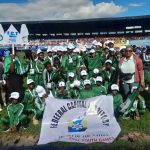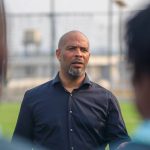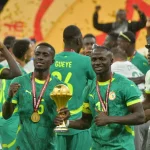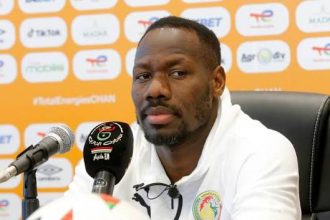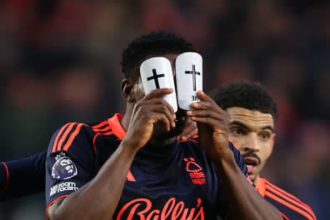In a bold move that could reshape the landscape of football arbitration in Nigeria, former Rivers United player Deputy Echeta has taken his long-running contract dispute with the club to the Court of Arbitration for Sport (CAS) in Lausanne, Switzerland. The case, now formally registered as CAS 2025/A/11424 Echeta Deputy Ugonna v. Rivers United FC & Nigeria Football Federation, challenges the Nigeria Football Federation’s Players Status and Arbitration Committee (NFF PSAC) over what Echeta describes as the illegal and procedurally flawed reversal of a prior ruling made in his favor.
The unfolding legal battle, which has garnered attention from players’ unions and legal observers across the continent, could have major implications for the sanctity of arbitration processes in Nigerian football and beyond.
At the center of the case lies a high-profile employment dispute between Echeta and Rivers United FC. On December 2, 2024, the NFF PSAC had initially ruled in favor of Echeta, finding Rivers United guilty of multiple contractual violations and breaches of FIFA employment regulations. The judgment was hailed as a significant victory for player rights, affirming Echeta’s claims of unfair treatment and unpaid entitlements.
However, the landscape dramatically shifted on March 1, 2025, when the PSAC held a new hearing, this time excluding Echeta and his legal representatives, and reversed its previous decision, now ruling in favor of Rivers United. This unexpected reversal was made public only weeks later in late April, sparking outrage among stakeholders.
Through his legal counsel, Echeta has taken the matter to CAS, seeking redress on three fronts:
- Annulment of the second PSAC ruling on the grounds of procedural irregularity and lack of jurisdiction;
- Enforcement of the original ruling from December 2, 2024;
- A substantive ruling on damages and compensation, to be paid by Rivers United for breach of contract.
“This isn’t just about me,” Echeta stated through a written release. “It’s about the integrity of arbitration in Nigerian football. If decisions can be overturned in secrecy without involving both parties, then what’s the point of having arbitration at all? This puts every player at risk.”
His counsel argues that by reopening the case unilaterally and inviting only Rivers United to the hearing, the PSAC violated both domestic procedural norms and international standards under FIFA’s regulations for the resolution of disputes.
Echeta’s decision to escalate the matter to CAS may now place the NFF’s arbitration structure under international scrutiny. Legal experts suggest that if CAS finds in favor of Echeta, it could force a broader reform of how player disputes are handled within Nigeria’s football governance framework.
“This case tests the limits of due process in Nigerian football,” says sports lawyer Chinedu Ibe. “It will set a strong precedent either confirming that players are protected by fair arbitration processes or exposing deep flaws that need urgent reform.”
The Court of Arbitration for Sport will now begin its deliberations, with hearings expected to follow in the coming months. CAS, known for its rigorous and impartial processes, will decide whether the NFF PSAC acted ultra vires beyond its legal powers and whether Echeta is entitled to reinstatement of his original judgment and compensation.
For now, the Nigerian football community watches closely, with players, clubs, and administrators awaiting a ruling that could either reaffirm the credibility of local arbitration bodies or trigger a reevaluation of how justice is administered in Nigerian sport.
One thing is clear: Deputy Echeta’s fight is no longer just personal; it has become a symbolic stand for fairness, transparency, and the rule of law in Nigerian football.



